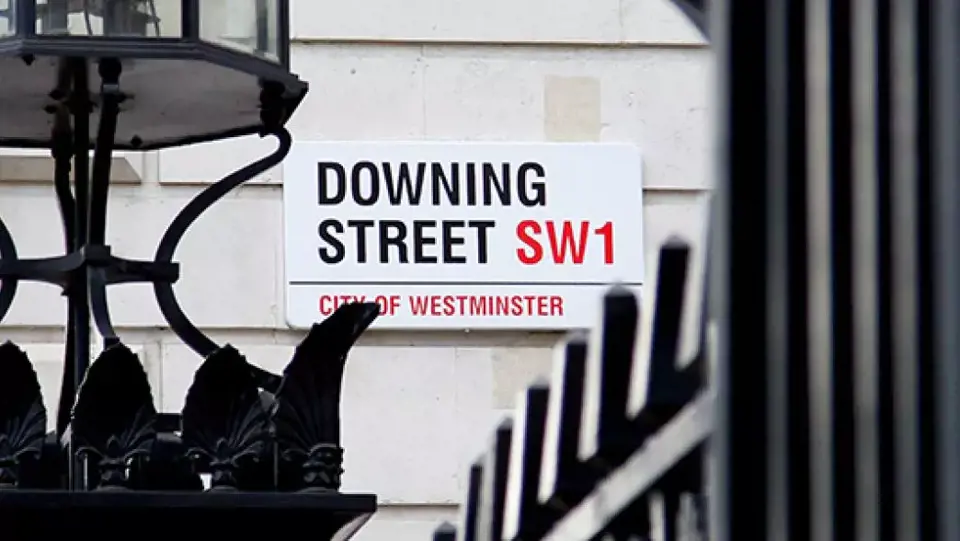The fleet industry is calling on the next Government to make a series of tax and regulatory changes, including scrapping plans to introduce vehicle excise duty (VED) for electric vans.
With campaigning underway ahead of the General Election on July 4, industry bodies have published a list of priorities, with a particularly focus on decarbonisation.
The Association of Fleet Professionals (AFP) released its Tax and Regulation Manifesto last week.
Alongside the removal of plans to introduce VED on electric vans from April 2025, it is calling for fiscal support to make electric cars and vans more attractive in the used market, a better labelling scheme explaining the range of electric vans in different weather conditions and with different loads, and improvements to the charging infrastructure.
The AFP also wants the next Government to finally resolve ongoing confusion over regulations surrounding 4.25 tonne electric vans and new benefit-in-kind (BIK) tax tables up to 2030.
The manifesto, says the AFP, focuses on practical ideas, ranging from small detail alterations to major strategic shifts, where it believes that change or definition is required to enable businesses to move forward with their fleet and mobility plans faster and more effectively.
AFP chair, Paul Hollick, said: “Whoever wins power, we hope to work with them to help resolve these many issues, and the document represents the AFP’s core thinking about what needs to be done.
“It is designed to focus on practical ideas, ranging from quite small detail alterations to major strategic shifts, around which we believe that change or definition is required to enable businesses to move forward with their fleet and mobility plans faster and more effectively.”
He explained that the majority of the points added to the new edition of the document focussed on current issues experienced around van electrification.
“One of the undeniable facts in fleet over the last few years is that van electrification is proving much, much more difficult than for cars,” he continued.
“We are now in the situation where the majority of new cars being added to fleets are electric vehicles or plug-in hybrids, a percentage that we very much expect to climb over the next few years in a steady and predictable manner towards the 2035 production deadline.
“The same is just not happening for vans. There are issues over the capabilities of the vehicles themselves that make their operational viability for some fleets open to question, while availability of charging is also an ongoing issue for many. In the company car sector, adoption has been powered by preferential benefit in kind taxation, and some kind of government support is needed to really get the electric van market moving in the same manner.”
The AFP is also calling for interventions in the used market, especially bearing in mind the large numbers of ex-company cars that were starting to enter remarketing.
“A properly functioning used market is essential for the electrification of the UK car parc but there are indications that issues remain, largely around the appetite of buyers for these vehicles,” said Hollick.
“In several countries, governments are offering support such as the interest free loans being offered in Scotland, and we’d like to see more done here.
“The fact is that fleets need to be able to set realistic future residual values in order to viably operate electric cars and vans, and the used EV market needs to be quickly developed to a point of stability in order for this to be possible.”
He added: “As an organisation, we would like to help enable those conversations to take place, and for whoever wins power to take a serious look at the resulting suggestions.
“Of the points we suggest, several could be implemented quite easily by any new government. Others, such as the need for discussions around a road tolling plan, are very much strategic and part of longer-term shifts in policy.”
The first edition of the document was created three years ago, and the latest version has been expanded to 24 points from the original 13, which reflects the growing number of issues that fleets are facing.
Dedicated logistics and supply chain minister

Logistics UK, meanwhile, has called for the appointment of a minister for logistics and supply chain by the UK’s next Government.
Chief executive David Wells stressed that focusing on investment and growth in the logistics industry would bring dividends for the UK’s whole economy.
“Whether manufacturing or retail, healthcare or education, every part of our economy relies upon logistics to provide all the goods needed to generate business and growth,” explained Wells.
“Innovative, integrated infrastructure backed by a national logistics network will deliver efficiencies and opportunities that can benefit us all.
“Giving logistics a voice at the heart of Government would ensure that the needs of industry and business are heard, and that our sector can work with government to drive up the country’s productivity.”
Logistics UK launched its new manifesto earlier this year, endorsed by senior leaders from across the sector.
the manifesto - Unleashing the power of logistics to drive growth across the whole economy - has already been distributed to all political parties, with the request that its policy proposals be incorporated into the parties’ own manifestoes as they begin campaigning.
In addition to the appointment of a new minister, the sector is pressing politicians to ensure a fair transition to a green economy, underpinned by an agreed roadmap to net zero, depending on the availability of technology, infrastructure investment, regulatory reform and tax incentives.
It is also calling for skills partnerships and reforms to funding models to ensure a continued pipeline of talent is attracted into the sector, with continued support for the successful Generation Logistics campaign which focuses on raising awareness of the opportunities the sector offers.
“Logistics businesses operate on particularly narrow margins, with limited funds currently available for investment in new technologies,” continued Wells.
“We continue to press for a dynamic mechanism for fuel duty to be introduced, with tax incentives for the use and production of alternative low carbon fuels, to keep business costs down and ensure that the sector can invest effectively in a green future.”


























GlennEwen - 29/05/2024 12:57
Why are we always told that there must be Government intervention? If the market for EVs were strong enough, and the products affordable (and sustainable), then they'd be a roaring success. They aren't, and no amount of gerrymandering will make a difference. As always, it will ultimately come at the expense of the taxpayer. If you have to subsidise the second-hand market in favour of one particular fuel; you're on a hiding to nothing.